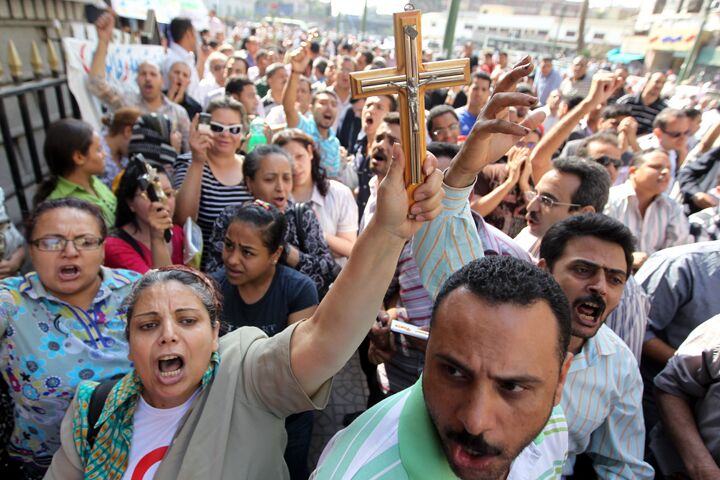
Egypt: Muslims Burn Christians’ Houses, Threaten Priest
“We will kill the priest, we will kill him and no one will prevent us,” chanted hundreds of Muslim extremists in the central Egyptian village of Beni Ahmad, the Assyrian International News Agency reported on June 24.
The Muslims began threatening to destroy the church in the village in March after Christians began renovations. A Muslim mob ordered the church to stop restoration work and to expel the priest on March 23.
A similar incident took place on June 25 in Awlad Khalaf in southern Egypt. Muslims with bulldozers tried to destroy a church that was being built on Christian-owned land, according to local security chief Assem Hamza. Christians fired on the Muslims and three were shot, said Hamza. One Christian was stabbed. The church, according Hamza, was being constructed illegally.
The Assyrian International News Agency gives a different version of events, saying that 200 Muslims torched eight Christian homes. The news agency states that the Muslims were acting on rumors that a church was being built; the Christian who owned it claims he was only building a house. “The police arrived three hours after the looting and torching had ended,” it reported.
The violence comes after the Egyptian government promised to deal with this kind of anti-Christian violence. After attacks on a church in the Imbaba neighborhood of Cairo last month, Christians, along with some Muslim sympathizers, protested outside the state tv building. After they sat there for nearly two weeks the government promised to protect places of worship and use “an iron fist” to stop the mobs and end the violence.
At first things looked promising. Police arrested over 200 people connected with the Imbaba attacks and quickly stopped fighting in Ain Shams, on the outskirts of Cairo, where Muslims claimed a church was being opened illegally.
But appearances are deceiving. Writing in the New York Review of Books, former Middle East correspondent for the Wall Street Journal Yasmine El Rashidi says:
Of those arrested for the attacks in the Imbaba quarter, many have been released without sentences—including Salafis who had been seen on videos inciting violence against the churches. One had said about the Coptic Church, “It’s a mafia that harbors weapons.” Of those still under investigation, 48 have recently been referred to the Supreme Court for trials—among them many Copts. Only two of 16 people arrested for attacking the Copt protesters during their 13-day sit-in received sentences—two years, with bail. “It’s telling. These are all simply gestures,” Father Sarabamon told me between his conversations with well-wishers. “The government has made the gesture of arrests, of trials, but when you look at action, nothing has happened. Even the churches they promised to reopen have not been opened.”
With the Muslim Brotherhood poised to take power, things are set to get worse. “The Brotherhood made scathing statements against women and Copts soon after Mubarak’s ouster,” writes El Rashidi. “Its leaders are now openly calling for an Islamic state, something they had previously denied was among its goals.”
They may have recently accepted Coptic Christian members, but as Nabil Abdel Fattah, a political analyst at the al-Ahram Center for Political and Strategic Studies, said, they are “just for show … like flowers on the Brothers’ jackets.”
Neither the current Egyptian government nor the Muslim Brotherhood have shown that they will do anything about these anti-Christian attacks. The attacks are part of a building global clash between Muslims and Christians—and Egypt will be firmly on the Islamic side.
